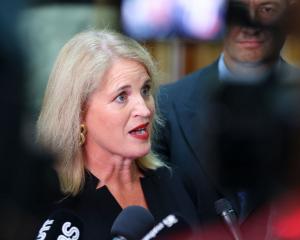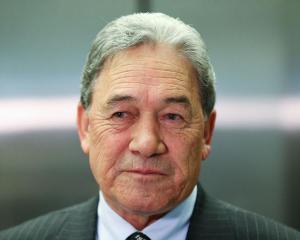With petrol prices already at all-time highs, motorists will pay even more tax at the pump to ensure the Government's "roads of national significance" are completed on time, Prime Minister John Key said yesterday.
Petrol tax rose by 2c a litre or 4 per cent this month, but Transport Minister Gerry Brownlee yesterday warned of further increases as he unveiled the National Land Transport Programme for 2012-15, which sets out most of the Government's transport spending over the next three years.
At $12.3 billion, the programme is the biggest so far and is a 12.8 per cent increase on the 2009-12 period.
NZ Transport Agency chief executive Geoff Dangerfield said the programme had a focus on supporting the recovery of Christchurch after the earthquakes.
It also prioritised ongoing work on the Government's roads of national significance and $3.4 billion of investment in Auckland "where there are significant opportunities for improved transport to support the city's contribution to New Zealand's economic growth", he said.
But Mr Brownlee said the Canterbury earthquakes, reduced growth forecasts and the tighter fiscal environment had put pressure on the National Land Transport Fund, which contributes most of the funding - $9.38 billion in the new programme. The fund is made up of fuel taxes, road user charges and vehicle registration fees.
That meant spending in the programme would exceed forecast revenue by about $220 million.
To meet the shortfall, the Government would increase fuel tax and road user charges and establish "a short-term, one-off" $100 million borrowing facility for the NZTA to manage cash-flow variations.
Mr Brownlee would not comment on the size of tax hikes being considered other than that they were "in the realms of the rate of inflation".
Speaking to reporters in Rarotonga yesterday, Mr Key said apart from the slower economy, the fuel tax take was being hit because "cars are getting a lot more efficient".
"So by definition we get less revenue because of that.
"From the Government's point of view, we want to continue at the same pace with our roads of national significance and all of the other work we're committed to around the country and so to fund that we do need a little more revenue."
Asked whether the Government was punishing owners of fuel-efficient vehicles, Mr Key said: "These things are always a trade off."
Mr Key said it was true that owners of older, less fuel-efficient vehicles would be hit harder, but "in the long run there is quite a strong argument for people moving into more fuel-efficient cars for a variety of reasons and we actively encourage them to do that if they can afford to".
Final details and decisions of the funding package, including decisions on fuel excise and road user charge increases, will be announced before the end of the year.
Labour transport spokesman Phil Twyford said the Government wanted to take more road taxes off New Zealanders than ever before in order to spend more on land transport than ever before, "and still they want to borrow, toll, and use public private partnerships to build roads, so the question for this Government is really, how much is enough?".










